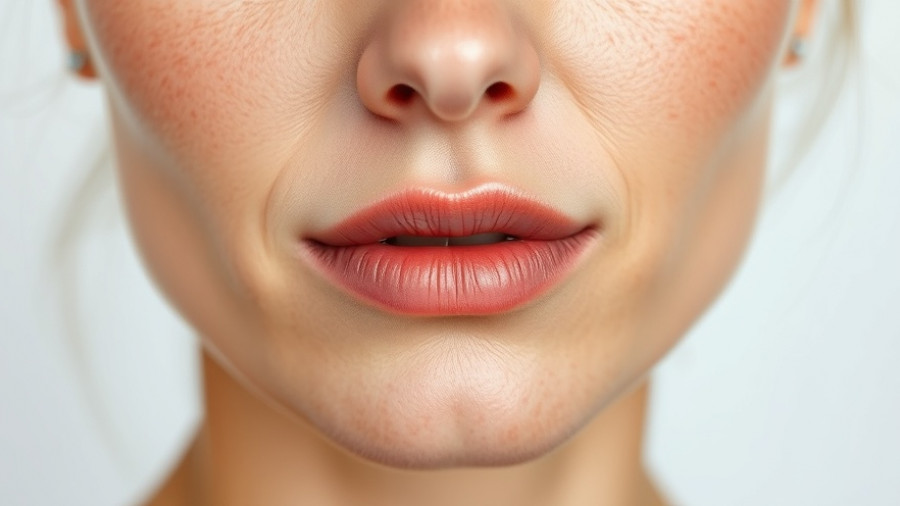
The Hidden Connection: How Gut Health Influences Skin
Uneven skin tone, particularly caused by rosacea, isn't just a superficial issue—it can be indicative of deeper health concerns, primarily those originating from the gut. Rosacea affects millions, causing discomfort and impacting self-esteem, yet only recently has the undeniable connection between gut health and skin conditions gained attention. Research suggests that an imbalance in gut bacteria could trigger inflammation that manifests as redness or uneven skin tone.
Understanding the Gut-Skin Axis
Medical experts highlight the gut-skin axis—an intricate relationship where the gut microbiome not only aids in digestion and immunity but also influences skin health. A disrupted microbiome can lead to systemic inflammation, exacerbating skin conditions like rosacea. With gut health linked to inflammatory responses, it’s essential to consider how gut bacteria can worsen or alleviate skin issues.
Gut Bacteria and Rosacea: The Evidence
Studies indicate that individuals with rosacea often harbor harmful bacteria in higher quantities. Lactobacillus and Bifidobacterium are beneficial strains; however, increased Firmicutes and Proteobacteria correlate with heightened inflammation and rosacea flare-ups. This bacterial imbalance suggests that enhancing gut health could lead to improved skin conditions, essentially addressing the root cause of rosacea rather than just treating its symptoms with topical solutions.
Diet: A Key Player in Rosacea Management
To combat rosacea, dietary adjustments can prove beneficial. Increasing fiber intake supports the growth of good bacteria in the gut, fostering a healthier microbiome. Foods rich in fiber such as whole grains, fruits, and vegetables not only contribute to digestive health but also help mitigate inflammation, making them crucial for individuals dealing with rosacea.
Additionally, fermented foods like yogurt, kefir, and kimchi introduce probiotics that can improve gut health further. Highly processed foods, sugar, and alcohol should be avoided as they may amplify symptoms by contributing to an existing imbalance in gut microbiota.
Actionable Insights: Improving Gut Health for Clearer Skin
- Incorporate Probiotics: Regularly consume yogurt, kefir, and kombucha to boost beneficial gut bacteria.
- Embrace Fiber-rich Foods: Prioritize fruits, vegetables, and whole grains to nourish your gut microbiome.
- Limit Inflammatory Foods: Reduce intake of processed foods and sugars that can worsen rosacea symptoms.
- Manage Stress: Practicing mindfulness and stress-reduction techniques can help maintain a healthy gut-skin connection.
Ultimately, understanding the link between gut health and skin conditions like rosacea leads to a holistic approach to treatment. Taking proactive steps towards improving gut microbiota can enhance not only your skin's appearance but overall well-being.
If you're grappling with rosacea or uneven skin tone, now is the time to consider the broad effects of gut health on your skin. A balanced diet enriched with probiotics and fibers could be your ticket to achieving that radiant complexion you're striving for. Keeping our mind, body, and spirit in harmony fosters better health, enhancing both physical and spiritual well-being.
 Add Row
Add Row  Add
Add 




Write A Comment